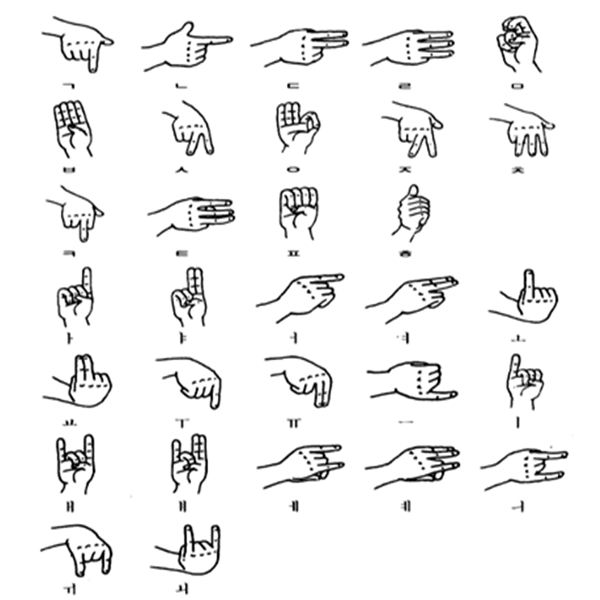Korean Sign Language is an official language in South Korea, finally.

My friend Christine Sun Kim asked about the new law that made Korean Sign Language official in South Korea. There hasn’t been any media coverage in English yet, so I did a quick and rough translation of two articles.
Article 1
Dream of the deaf (hearing or speech impaired), the enactment of the law of Korean Sign Language comes to reality.
The National Assembly met in the 31st and passed “Korean Sign Language Standard Policy”, “Sign Language Bill”, “Korean Sign Language Bill”, “Sign Language and Deaf Culture Standard Policy” which is merged as <Fundamental Law of Korean Sign Language>.
The proposal consists of the national and regional policy and the enactment for education of Korean Sign Language, promoting and distributing information to create a better environment to use KSL. Every five years Korean Sign Language Improvement Planning and every three years, research and investigation of the use of KSL for the deaf need to be conducted.
Also, to preserve and improve KSL, it needs to be researched continuously and there needs to be an educational environment where the disabled person can learn KSL early on. To promote KSL, public organization, and KSL related corporations and organizations are to be assigned as the KSL educational center and their operation will be financially supported.
Article 2
Korea Deaf Association Inc. established an initiative to the enactment of the fundamental law of Korean Sign Language in September of 2008. And eight years later, on the last day of 2015, the bill has passed the National Assembly.
The enactment of the fundamental law of Korean Sign Language is made possible not only because of the efforts from the Korean Deaf Association but many supporters in the disability community who have been wordlessly advocating for the change. Countless people have helped with the campaign, from one-person protests to many who signed a petition to enable the use of Korean Sign Language as the fundamental law.
This acknowledgment of Korean Sign Language is not a Disability Welfare Law, but it’s a law to protect language rights. This will bring slow but sure change to many of us in the deaf community using the minority language, facing discrimination and enduring unfair situations.
The language barrier that we, the deaf community, have experienced is too numerous to count in our life time.
It begins with the disconnection with the family, violation of the right to education, constraints in the profession, or even in a small exercise of rights as a member of the community. We had to live with the difficulty of communication throughout our lives. Thus, we created our own culture within The Republic of Korea, calling ourselves Citizens of the Republic of Deaf, in order to support and take care of each other.
The enactment of the law of Korean Sign Language affirms that those of us in the deaf community who can not speak Korean can speak in our own language of Korean Sign Language, and it’s not merely a gesture, kick or movement. Now, we look forward to policy changes that will grant us the equal rights of language as the rest of Korean citizen.
With this enactment, we hope it’s a beginning of rights to language and language welfare, which has been put aside and have not been considered meaningful in this society until now.
